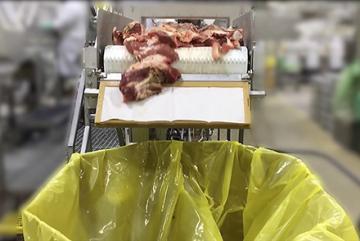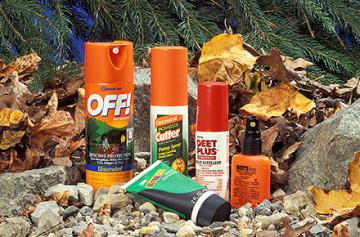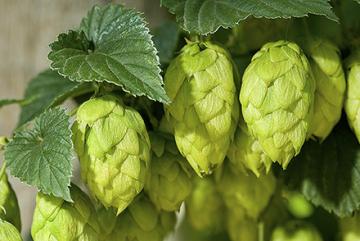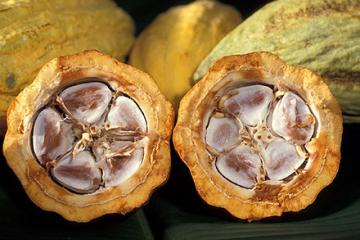ARS Research in Your July 4th Celebration

ARS scientists have developed a continuous sampling device to be used during beef processing to test for E. coli O157:H7. (ARS, D4061-1)
Independence Day is almost here, and for many people that means firing up the grill and cooking some hamburgers and hot dogs.
Did you know the Agricultural Research Service (ARS) is working hard to make sure that your ground beef is safe from bacteria?
According to the U.S. Centers for Disease Control and Prevention, every year an estimated 48 million people in the United States get sick from food poisoning. One of the objectives of the USDA's U.S. Meat Animal Research Center (MARC) is reducing the risk of foodborne illness. With that goal, MARC researchers have developed a new device to be used during processing that will provide better samples of beef for more accurate testing for the presence of harmful microbes such as E. coli.
Speaking of grilling, what goes great on those burgers and dogs? Well, pickles, of course! You may not realize it, but the U.S. pickle industry has a major environmental problem—disposing of large amounts of the brining salt used to turn cucumbers into pickles. But things are looking up! ARS scientists have developed a way to help pickle manufacturers replace most of the pickling salt in their processing with calcium chloride, thereby reducing the amount of sodium chloride that would need to be disposed of by up to 80 percent.
If you’re like most people, you probably have potato salad on your July 4th menu. You may know that most potatoes come from Idaho, but you might not know that ARS has a Small Grains and Potato Germplasm Research Unit there whose primary research is the development of potato varieties with improved disease and pest resistance. As a matter of fact, if you’ve ever eaten McDonald’s French fries, there is a good chance you’re eating an ARS-developed potato. Two ARS potato varieties—'Clearwater Russet’ and ‘Blazer Russet’—have been selected by McDonald’s for their French fries.
Iced tea makes a great 4th of July beverage, but some people prefer an ice-cold beer. If that’s more your style, you may be interested to know that ARS research plays a role in enhancing the quality of the hops and barley needed to produce beer. Because pests and diseases—such as powdery mildew—are a constant threat to those crops, ARS scientists are working hard to breed new, hardier varieties. Their latest accomplishment is a new hop variety named ‘USDA Triumph,’ which is both disease tolerant and high yielding.
Unfortunately, at many cookouts, mosquitoes are often uninvited guests. One of the most effective mosquito repellents available, DEET, was developed by ARS. Back in 1954, an ARS scientist developed the repellent for the U.S. Army to protect soldiers from disease-causing insects. Now DEET is found in a number of repellents available to consumers. Recent concern over the West Nile and Zika viruses has aimed ARS efforts at providing consumers with a greater array of options to choose from in the war against mosquitoes.
In laboratory studies by ARS scientists, essential oils in Italian honeysuckle killed 100 percent of mosquito larvae. And in a separate study, chemists with ARS’s National Center for Agricultural Utilization Research Unit converted fatty acids from cuphea oil into an insect repellent that, in preliminary trials, worked as well as, or better than, DEET.
Since no celebration would be complete without a sweet ending, perhaps you will be serving strawberry shortcake or apple pie for dessert. Well, ARS researchers conduct important research on strawberries and apples. And if your kids love s’mores, they’ll be happy to know that ARS is working to protect cacao trees, too. The beans are the main ingredient in chocolate.
So, when you and your family gather together to celebrate Independence Day this year, you’ll be able to tell them that, from the burger on their plate to the dessert you serve with it, ARS’s research touches their daily lives in many surprising ways.— By Nancy Vanatta, ARS Office of Communications.
You May Also Like




